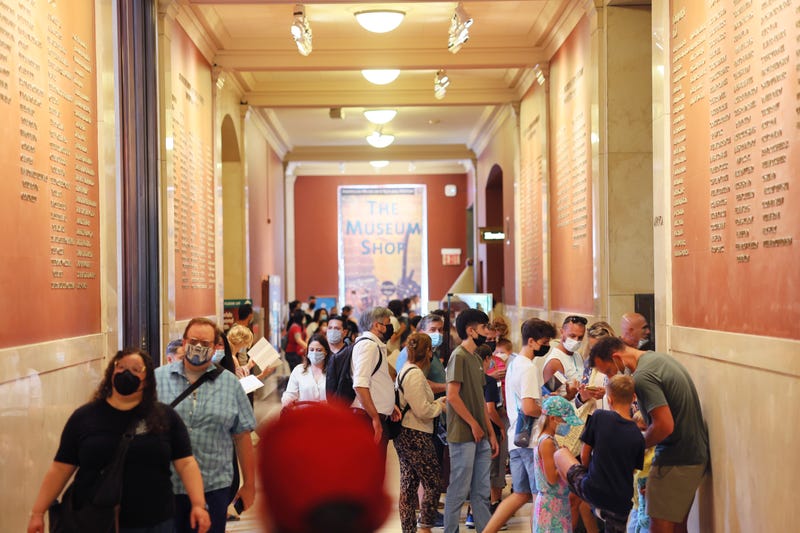
NEW YORK (1010 WINS/WCBS 880) – Two major halls featuring Native American cultural items will close to the public at the American Museum of Natural History, museum leaders said Friday in response to new federal rules.
The New York Times reported that the Eastern Woodlands and the Great Plains will close starting this weekend, and they'll remain closed indefinitely. Various display cases that feature Native American objects will also be covered up at the Upper West Side museum.
In total, about 10,000 square feet of exhibition space will be closed to the public following the move, which is in response to a renewed effort by the Biden administration to give tribes more of a say in what happens to cherished items. Many were acquired in ways now seen as objectionable, including via grave robbers.
The move was announced in a letter Friday morning from the museum's president, Sean Decatur, who wrote that the halls being closed are "artifacts of an era when museums such as ours did not respect the values, perspectives and indeed shared humanity of Indigenous peoples."
Decatur told the Times that "some objects may never come back on display," though "smaller-scale programs" could be added throughout the museum as the consultation process unfolds.
Museums nationwide have been anticipating the new rules from the U.S. Department of the Interior, which will involve ongoing conversations with tribal representatives about cultural artifacts to display or return to the tribes.
Decatur noted in his letter that while the move "may feel sudden to some," it "may seem long overdue to others."
Myra Masiel-Zamora, an archaeologist and curator with the Pechanga Band of Luiseño Indians, told the Times, "We’re finally being heard."
“We can say, ‘This needs to come home’ and I’m hoping there will not be pushback,” she said.
Last October, the museum announced it would pull all human remains—many of them Indigenous people—from public display and change how it maintains its collection of body parts with the aim of eventually repatriating what it can and respectfully holding what it can’t. The process was expected to impact six of the museum's galleries.
And in 2022, the museum removed a bronze statue of Theodore Roosevelt from its front steps that had been criticized as racist. The artwork featured the 26th president on horseback with a Native American man and an African man on foot at his side.
